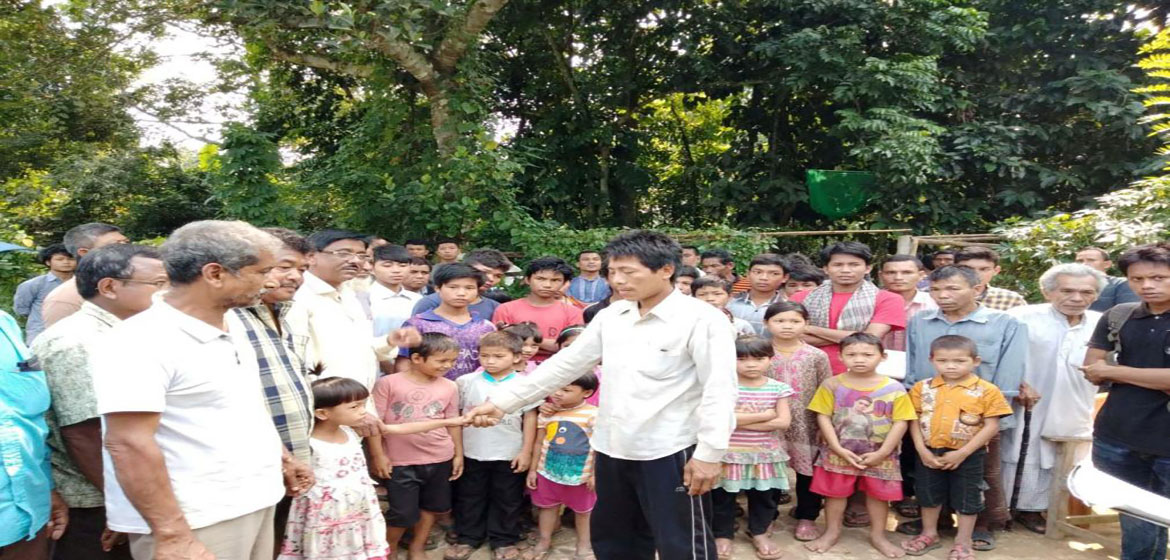27 poor indigenous children of Bandarban rescued from inhuman life in Tangail
By Mirza Shakil
"I'm too poor to feed my five children well and so, I agreed to hand over one of them to Robi Khan after getting promise that he would arrange food and education for her," said Jhum cultivator Hokkoi Khumi of Komkhemotto in Ruma upazila of Bandarban.
"But after four months, I was informed by a local schoolteacher that my five-year-old kid was living hungrier still," he said.
Ching Pao Mro of Kamalabazar in the same upazila, who also handed over her girl child to Robi, told the same story.
The two kids are among the 27 children belonging to indigenous Chakma, Khumi, Mro and Tripura communities, who were rescued from an inhuman condition in Tangail's Madhupur upazila on October 16.
Rafiqul Islam alias Robi Khan of Purbo Pakutia village of Ghatail upazila in Tangail had taken the children, aged five to sixteen, from different villages in Bandarban's Ruma in the last two years promising arrangement of food and education for them.
Fourteen of the rescued children, aged five to ten, were sent back to their parents in Bandarban, said Ugin Nokrek, president of Joyenshahi Adivasi Unnoyon Parshad in Madhupur.
Of the rest 13, two HSC examinees were kept at a local missionary hostel while 11 others -- PSC, JSC and SSC examinees -- were sheltered at the houses of local solvent Garo people for the period until completion of their examinations, he said.
Introducing himself as a professor of English, Robi with the help of several locals convinced the poor indigenous families in the hill areas to send their children with him, said Nipun Tripura, president of Dhaka city unit of Pahari Chhatra Parishad, who was with the rescue mission.
Robi admitted the children to schools and college in Madhupur, and engaged them in different works but did not provide them necessary foods and minimum living facilities, he alleged.

Two shabby bamboo structures where the children lived amid awful conditions with scanty food. Photo: Star
“The hungry children often moved to doors of the local Garo people, seeking rice. They also ate raw banana, papaya and pineapple after stealing these from people's orchards,” said Bijoy Hagonj, Madhupur unit president of Bangladesh Garo Students Association.
The 27 children were given only a boiled bottle guard with dal to eat on that day of their rescue, he added.
Contacted, Robi Khan said he cultivates herbal plants in Madhupur forest on lands leased from local Garo people.
"I used to go to the indigenous people of Bandarban, looking for rare herbal plants and also for research on the lives, languages and culture of the indigenous communities there," he said.
"I had taken the unprivileged children for teaching them cultivation and processing of herbal plants, in addition to institutional education.
"But several Christian religious leaders (fathers of local missionaries) made local Garos angry with me after raising false allegations of keeping the children hungry in insecure and unhygienic environment,” Robi claimed.
However, Akter Hossain, chairman of Sholakuri Union Parishad in Madhupur, said, “Although Robi had told the children's guardians that they would be kept in his hostel in Madhupur, they were kept in two bamboo-made shaky structures in the forest. They had to lie on floor, without any mosquito net. There was only one toilet for the 27 children.”
“Only six kg of rice was allocated for the 27 children daily,” he added.
Source:
Related to SDG 10: Reduced inequalities and SDG 2: Zero hunger



